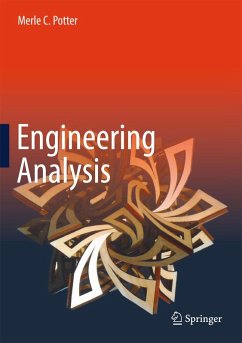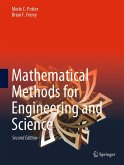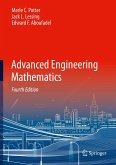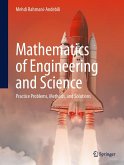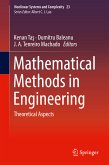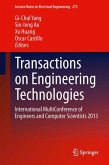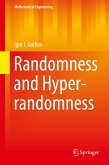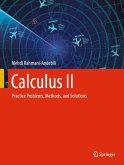The purpose of this book is to introduce undergraduate students of engineering and the physical sciences to applied mathematics often essential to the successful solutions of practical problems. The topics selected are a review of Differential Equations, Laplace Transforms, Matrices and Determinants, Vector Analysis, Partial Differential Equations, Complex Variables, and Numerical Methods. The style of presentation is such that the step-by-step derivations may be followed by the reader with minimum assistance. Liberal use of approximately 160 examples and 1000 homework problems serves to aid students in their study. This book presents mathematical topics using derivations (similar to the technique used in engineering textbooks) rather than theorems and proofs typically found in textbooks written by mathematicians. Engineering Analysis is uniquely qualified to help apply mathematics to physical applications (spring-mass systems, electrical circuits, conduction, diffusion, etc.), in a manner as efficient and understandable as possible.
This book was written to provide for an additional mathematics course after differential equations, to permit several topics to be introduced in one semester, and to make the material comprehensible to undergraduates.The book comes with an Instructor Solutions Manual, available on request, that provides solutions to all problems and also a Student Solutions Manual that provides solutions to select problems (the answers to which are given at the back of the book).
Dieser Download kann aus rechtlichen Gründen nur mit Rechnungsadresse in A, B, BG, CY, CZ, D, DK, EW, E, FIN, F, GR, HR, H, IRL, I, LT, L, LR, M, NL, PL, P, R, S, SLO, SK ausgeliefert werden.
Es gelten unsere Allgemeinen Geschäftsbedingungen: www.buecher.de/agb
Impressum
www.buecher.de ist ein Internetauftritt der buecher.de internetstores GmbH
Geschäftsführung: Monica Sawhney | Roland Kölbl | Günter Hilger
Sitz der Gesellschaft: Batheyer Straße 115 - 117, 58099 Hagen
Postanschrift: Bürgermeister-Wegele-Str. 12, 86167 Augsburg
Amtsgericht Hagen HRB 13257
Steuernummer: 321/5800/1497
USt-IdNr: DE450055826
Bitte wählen Sie Ihr Anliegen aus.
Rechnungen
Retourenschein anfordern
Bestellstatus
Storno

